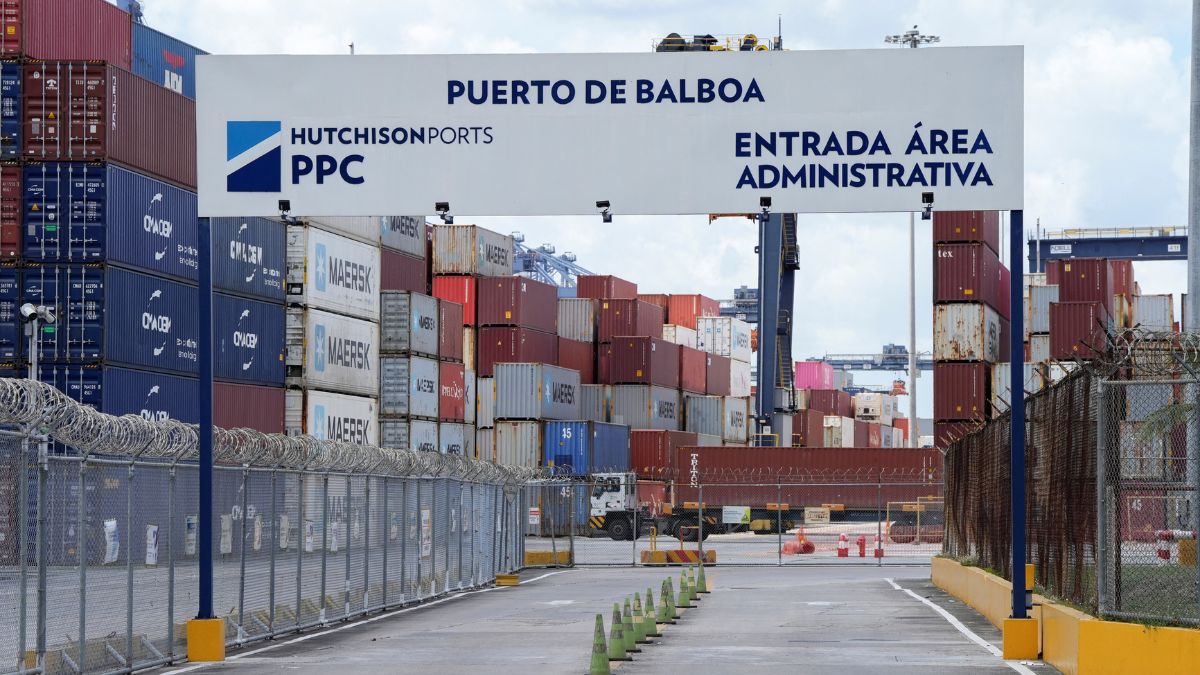A Hong Kong-based conglomerate has finalised a deal to sell its controlling stake in key Panama port operations, a move that effectively places the ports under American control.
The sale comes amid concerns from the US government, particularly from US President Donald Trump and US Secretary of State Marco Rubio, regarding alleged Chinese influence over the strategic shipping route.
Beijing and Panama have denied such claims.
All about the deal
CK Hutchison Holdings, a major Hong Kong-based conglomerate, announced that it would sell all shares in its subsidiaries, Hutchison Port Holdings and Hutchison Port Group Holdings, to a consortium led by BlackRock Inc.
The deal, valued at nearly $23 billion, includes $5 billion in debt and must receive approval from the Panamanian government before being finalised. The acquisition grants the BlackRock-led consortium control over 43 ports across 23 countries, including the crucial Panama Canal entry points at Balboa and Cristobal.
In addition to BlackRock, the consortium includes BlackRock subsidiary Global Infrastructure Partners and Terminal Investment Limited.
BlackRock, one of the world’s largest asset management firms, has yet to comment beyond a press release highlighting the transaction’s significance. The deal does not involve CK Hutchison’s interests in Hong Kong, Shenzhen, South China, or other Chinese ports.
US concerns over alleged Chinese influence
The sale follows years of concerns raised by Washington over potential Chinese influence on the Panama Canal’s operations. Trump has previously stated that the US “foolishly” relinquished control of the canal in 1999, under a treaty signed by then-President Jimmy Carter in 1977.
Trump and his allies have expressed worries about port fees and alleged Chinese control over canal logistics, claims that Panama has repeatedly refuted.
Earlier this year, US Senator Ted Cruz, chair of the Senate Committee on Commerce, Science, and Transportation, voiced concerns that China could exploit the canal or obstruct passage, stating that the ports act as “ready observation posts” for Beijing. “This situation, I believe, poses acute risks for US national security,” Cruz said.
The Trump administration had increased its scrutiny of Hutchison Ports, which managed Balboa and Cristobal under a renewed 25-year concession granted in 2021.
Panama launched an audit of the agreement, sparking speculation that it might be revoked. Amid these developments, reports suggested that a US-aligned company was being positioned to take over the ports.
What Panama has said
In response to Washington’s pressure, Panama’s government has strongly denied any foreign control over the canal’s operations. Panama’s President José Raúl Mulino recently rejected US claims of Chinese influence and insisted that the canal remains a “neutral international waterway.”
However, following a visit from Rubio in February, Panama announced its withdrawal from China’s Belt and Road Initiative (BRI) , Beijing’s global infrastructure strategy. This decision was met with strong criticism from the Chinese government .
A spokesperson from China’s Ministry of Foreign Affairs, Mao Ning, stated that China does not operate or manage the canal and pointed out that the waterway remains “permanently neutral.”
Who is CK Hutchison?
CK Hutchison Holdings, formed in 2015 from the merger of Cheung Kong Holdings and Hutchison Whampoa, is one of Hong Kong’s most prominent business empires. Founded by billionaire Li Ka-shing, the conglomerate operates in multiple industries, including retail, telecommunications, infrastructure, and ports.
The firm, which generated a net profit of around $3 billion in 2023, is listed in Hong Kong and registered in the Cayman Islands.
Li Ka-shing, now 96, built the company from humble beginnings, initially producing plastic flowers before expanding into real estate and infrastructure. He earned the nickname “Superman” for his business acumen, reported Fortune.
In 2018, Li passed control of the company to his son, Victor Li, a member of China’s political advisory body, the Chinese People’s Political Consultative Conference, reported The Wire China. The younger Li also holds board positions in Hong Kong Electric Investments, an affiliate partly owned by China’s State-owned Assets Supervision and Administration Commission.
Despite its global reach, CK Hutchison’s ties to China have long been a subject of debate. In 1997, when the company secured the Panama port concession, US officials examined whether it acted as a front for the Chinese government.
While no conclusive evidence was found, concerns resurfaced in recent years, particularly after CK Hutchison subsidiaries promoted their involvement in China’s Belt and Road Initiative.
Hutchison Ports, a subsidiary of CK Hutchison, operates 53 ports across 24 countries. It previously controlled 90 per cent of the Panama Ports Company, the operator of the Balboa and Cristobal ports.
Is the Canal free from alleged Chinese influence?
While the port sale shifts control away from a Hong Kong-based entity, debate over China’s presence in the Panama Canal continues. Some US officials argue that even indirect connections to Beijing pose risks.
Rubio stated that “a company based in Hong Kong is the government of China,” claiming that such firms would have to comply if Beijing ordered a shutdown of the canal.
However, Panama and China both refute these allegations. A Hong Kong government spokesperson told AFP that Hong Kong authorities “never interfere in the commercial operation of Hong Kong companies.”
Meanwhile, China’s foreign ministry reaffirmed that Beijing does not manage or operate the Panama Canal, calling it a “permanently neutral international waterway.”
While critics have suggested that Hong Kong-based firms are ultimately influenced by Beijing, CK Hutchison has maintained that its operations are strictly commercial.
Also Watch:
With inputs from agencies


)

)
)
)
)
)
)
)
)



